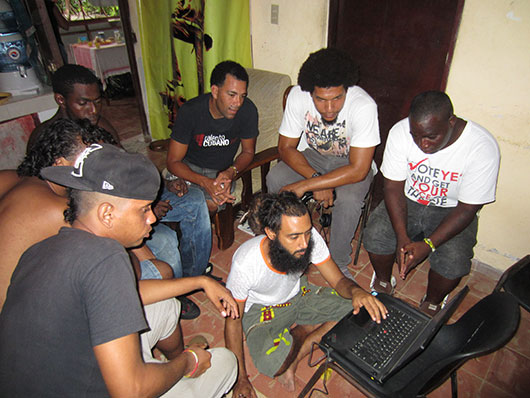According to USA Today, “Although companies such as MasterCard, American Express, Netflix and Twitter have announced plans to expand operations in Cuba, they can’t flourish on the island until two essential U.S. industries get on board: banking and telecommunications. And so far, officials in those fields are hesitant to jump into the risky Cuban market.”
The biggest risk or “red flag” is the fact that “Cuba remains on the U.S. State Department’s list of State Sponsors of Terrorism, which severely limits the ability of American companies to do business with the country.” In addition, “Cuba has no independent judicial system U.S. companies can turn to for settling disputes. The communist government has a long history of seizing foreign property. American companies still face restrictions because of the economic embargo the U.S. maintains on Cuba. In the wake of the 9/11 terror attacks and the U.S. recession, American regulators have cracked down on financial institutions that deal with customers involved in money-laundering, narco-trafficking, terrorism and other high-risk fields.”
The article mentions that “bringing better connectivity to Cuba has been one of the main tenets of [U.S. President] Obama’s renewed diplomacy with Cuba. Today, a mere 5% of Cuba’s 11 million residents are estimated to have access to the Internet — one of the lowest rates in the hemisphere.”
In fact “Cuba has tightly controlled Internet access since it first surfaced in the mid-1990s.”
John Kavulich, a senior policy adviser at the U.S.-Cuba Trade and Economic Council, believes that “setting up an Internet system that allows Cuban officials to control its usage would go against Obama’s goal of using connectivity as a way to empower Cuban citizens.” He added that “the lack of statements by the Cuban government should be a very large yellow caution flag.”
“Until Cuba signals a willingness to connect its people, all the telecom firepower and know-how in the USA won’t make a difference,” said Larry Press, professor of information systems at California State University-Dominguez Hills, who has studied Cuba’s Internet.
The professor added “The ball’s in their court now.”
To learn what you can do to help the push to “Connect Cuba”, click here.
To read the full article, click here.



